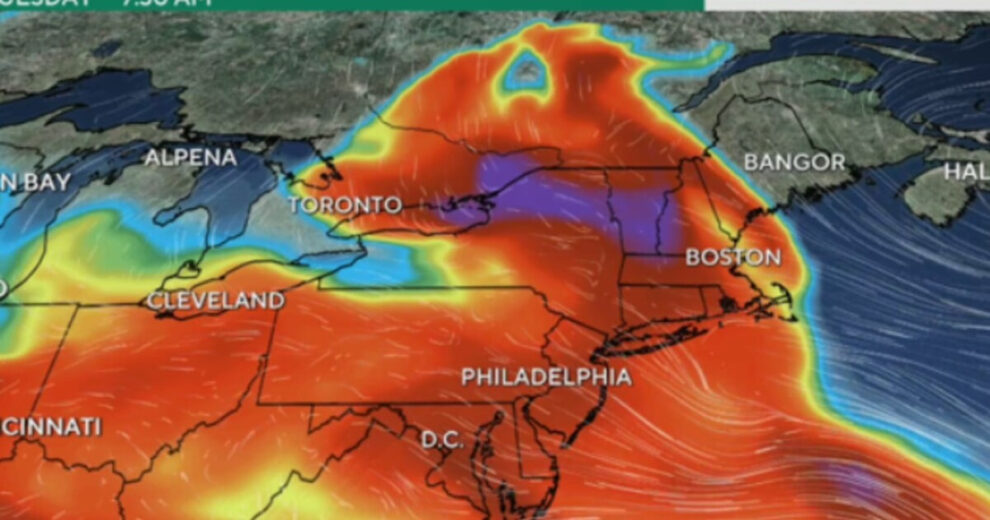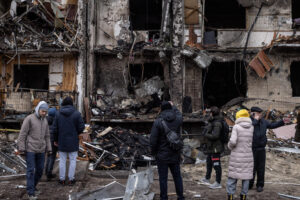Air quality alerts have been issued in more than a dozen states.
The hundreds of wildfires burning in Canada are continuing to cause poor air quality conditions for millions of residents in the U.S.
On Wednesday, the National Weather Service issued air quality alerts for at least 20 states from Minnesota and as far south as Georgia. The unhealthy air quality alerts even extended to the Northeast including all of New York state and New Jersey.
The smoke will linger over Minnesota to Washington, D.C., and down to Carolinas on Wednesday afternoon. Chicago, Detroit, and Minneapolis remained in the top five places for worst air quality in the world on Wednesday, according to IQAir, which monitors air quality worldwide.
By Thursday morning, cities such as Minneapolis, Chicago, Indianapolis, Atlanta and Pittsburgh will be affected by smoke, forecasts show.
The smoke will linger from Detroit to Atlanta and east to Washington, D.C., and near Philadelphia on Thursday afternoon. The haze is not expected to be as heavy by Thursday afternoon.
The poor air quality is not expected to affect New York City, but will stay in western New York, Pennsylvania and southern New Jersey, forecasts show.
Smoke from the nearly 500 wildfires burning in Canada has been making its way to the U.S. for more than a month, after an unprecedented start to the season in which a record 19.5 million acres has already burned. Canada has also broken its record for annual wildfire smoke emissions.
There is no end in sight for the wildfires due to dry conditions and extreme heat in the region.
Some regions in the Midwest measured at the lowest air quality in the world on Tuesday morning, including regions surrounding Minnesota, according to IQAir.
Chicago air quality hit the “very unhealthy” category on Tuesday afternoon as the Air Quality Index soared to 250. Any number over 100 is considered unhealthy for sensitive groups, and 250, or “Code Purple,” is considered very unhealthy for all groups.
Once the AQI reaches 151 and above, breathing the polluted air could cause a host of symptoms — even in healthy people with no preexisting conditions — including weakening the immune system and causing damage to the body, including the lungs and heart.
Exposure to concentrated amounts of PM2.5 can cause short-term effects such as irritation of the eyes, nose and throat; coughing, sneezing and shortness of breath, and long-term effects such as worsening of conditions including asthma and heart disease, according to the U.S. Environmental Protection Agency
Source: ABC News











